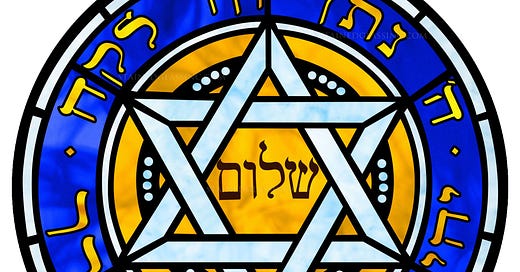Overrepresentation of Ashkenazi Jews Among Intellectual Distinctions : An Interesting Correlation
Their average IQ correlates very well with their overrepresentation
Introduction
Ashkenazi Jews—those of predominantly European ancestry—are strikingly over-represented among recipients of the world’s most prestigious intellectual awards. Although they constitute only about 0.13 percent of the global population1, they account for approximately 22 percent of Nobel Prizes, 24 percent of Kyoto Prizes, 23 percent of Fields Medals, 30 percent of Turing Awards, 29 percent of Abel Prizes, and 35 percent of Wolf Prizes, among many other surprising such disproportions. I will argue that this striking overrepresentation can be meaningfully linked to the group’s mean IQ, estimated at 112.
The Reasoning
Let’s take a world mean IQ of 88 (controversial). I also assume that a significant proportion of recipients of the world’s top intellectual honors fall at or above an IQ of 1502. If IQ scores are normally distributed, what share of all individuals with IQ ≥ 150 would be Ashkenazi Jews—and does that share align with their observed presence among major prize winners ? I carried out the numerical estimates using ChatGPT-o3:
And this 29% figure correlates very well with the typical proportions of Ashkenazi jews observed among the intellectual distinctions winners.
Using Della Pergola’s 2024 estimate of 15.8 million Jews worldwide and his earlier finding that roughly 65-70 % are Ashkenazi, about 10-11 million Ashkenazim exist today—roughly 0.13 % of the 8.23 billion global population (UN World Population Prospects, mid-2025)
Controversial but I base myself mainly on :
King’s College London’s 2015 press release on Spain et al. which pegs the mean IQ of Nobel Prize winners at around 145 also
Anne Roe’s 1953 study on 64 eminent U.S. scientists (many later laureates) which found a median of about 152
and Dean Simonton’s historiometric reconstruction of 301 historic “geniuses” (including multiple laureates) that yields an average childhood IQ of 153 (so higher later in life)
So I took 150 as a plausible mean but this is to be taken with a pinch of salt





What's the reason for choosing 150 as a threshold? Is there some data on this?
It's pretty clear that the IQ of Nobel Prize winners etc. will be far above average, but why not 140 or 160?